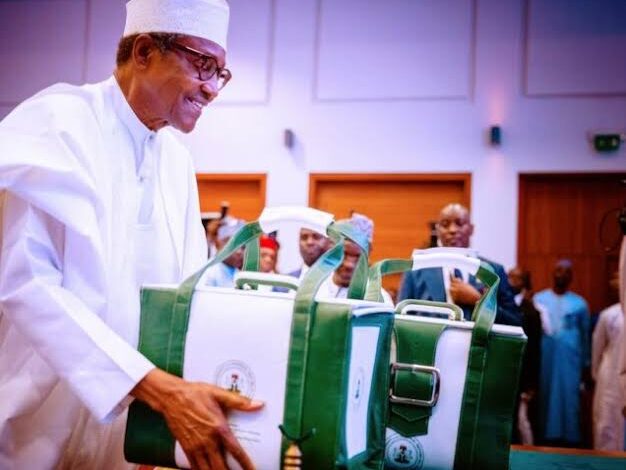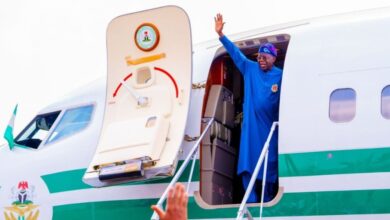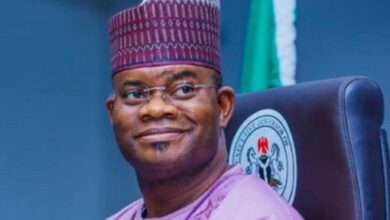Buhari Presents 2023 Budget To National Assembly

Security is currently tight in and around the National Assembly Complex Abuja as President Muhammadu Buhari presents a record of N20.51 trillion proposed budget for the 2023 financial year before a joint session of the National Assembly on Friday.
The President got to the temporary chamber of the House of Representatives, venue of the ceremony at 10:07am.
The N20.51 trillion budget which is the highest so far in the nation’s history, is the last to be presented by the president before his tenure elapses.
According to the president, this 8th financial blueprint of his administration is tagged the budget of Fiscal Sustainability and transition.
Buhari while talking to members of the parliament, noted that the 2023 transition budget was designed to address critical issues and lay a solid foundation for the incoming administration.
The president said he believes that based on these fiscal assumptions and parameters, total federally-collectible revenue is estimated at 16.87 trillion Naira in 2023.
He stated that the total federally distributable revenue is estimated at 11.09 trillion Naira in 2023, while total revenue available to fund the 2023 Federal Budget is estimated at 9.73 trillion Naira.
This, according to him, includes the revenues of 63 Government-Owned Enterprises.
The president also revealed that oil revenue is projected at 1.92 trillion Naira, Non-oil taxes are estimated at 2.43 trillion Naira, FGN Independent revenues are projected to be 2.21 trillion Naira.
Other revenues total 762 billion Naira, while the retained revenues of the GOEs amount to N2.42 trillion Naira.
In his speech, the president stressed that the 2023 Appropriation Bill is targeted at maintaining the focus of MDAs on the revenue side of the budget and greater attention to internal revenue generation.
President Buhari said, “Sustenance of revenue diversification strategy would further increase the non-oil revenue share of total revenues.”
While N2.42 trillion Naira would be for spending by Government-Owned Enterprises, the proposed 20.51 trillion Naira 2023 expenditure are:
Statutory Transfers of N744.11 billion; Non-debt Recurrent Costs of N8.27 trillion; Personnel Costs of N4.99 trillion; Pensions, Gratuities and Retirees’ Benefits of N854.8 billion; Overheads of N1.11 trillion; Capital Expenditure of N5.35 trillion, including the capital component of Statutory Transfers; Debt Service of N6.31 trillion; and Sinking Fund of N247.73 billion to retire certain maturing bonds.
The president said the government expects a total fiscal operations of to result in a deficit of 10.78 trillion Naira.
This, he said represents 4.78 percent of estimated GDP, above the 3 percent threshold set by the Fiscal Responsibility Act 2007.
“As envisaged by the law, we need to exceed this threshold considering the need to continue to tackle the existential security challenges facing the country,” Buhari detailed.
Speaking further, the president revealed that the government plans to finance the deficit mainly by new borrowings totalling 8.80 trillion Naira, 206.18 billion Naira from Privatization Proceeds and 1.77 trillion Naira drawdowns on bilateral and multilateral loans secured for specific development projects and programmes.
There is heavy presence of personnel from military, paramilitary and safety agencies on the premises.
Men of the Nigerian Army, Nigeria Police Force, Nigerian Security and Civil Defence Corps, Department of State Services, Federal Road Safety Corps, Federal Fire Service and sergeants-at-arms were on standby for the special duty.
The security operatives have manned certain points in and around the building, with stricter security checks on vehicles and persons entering the building.



